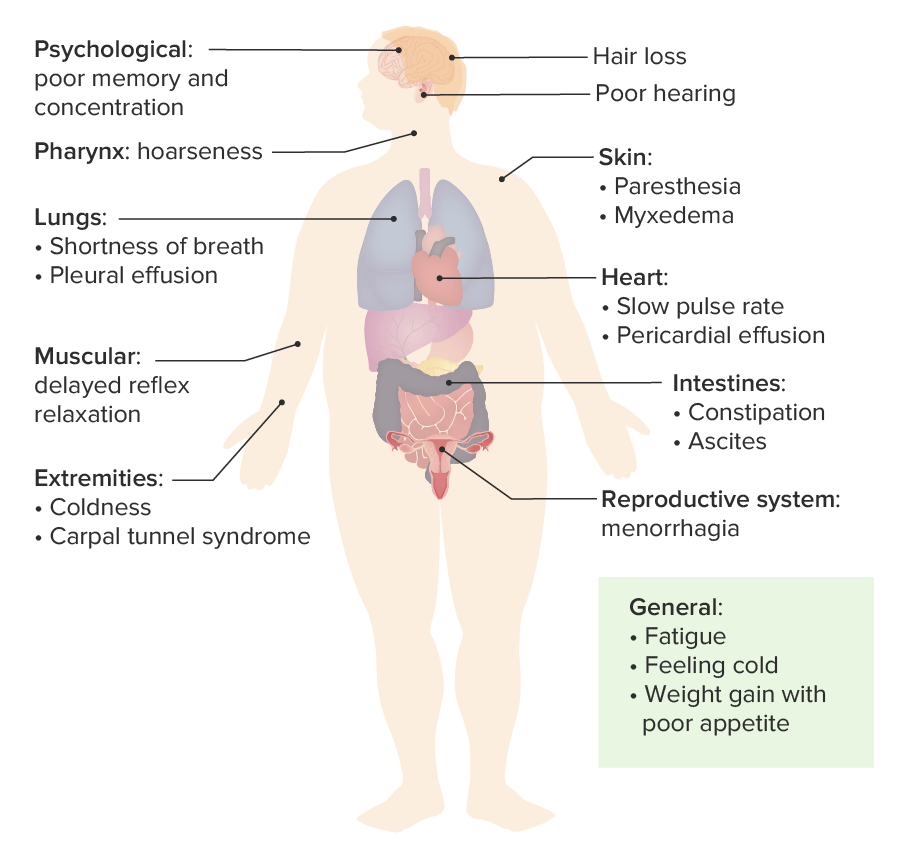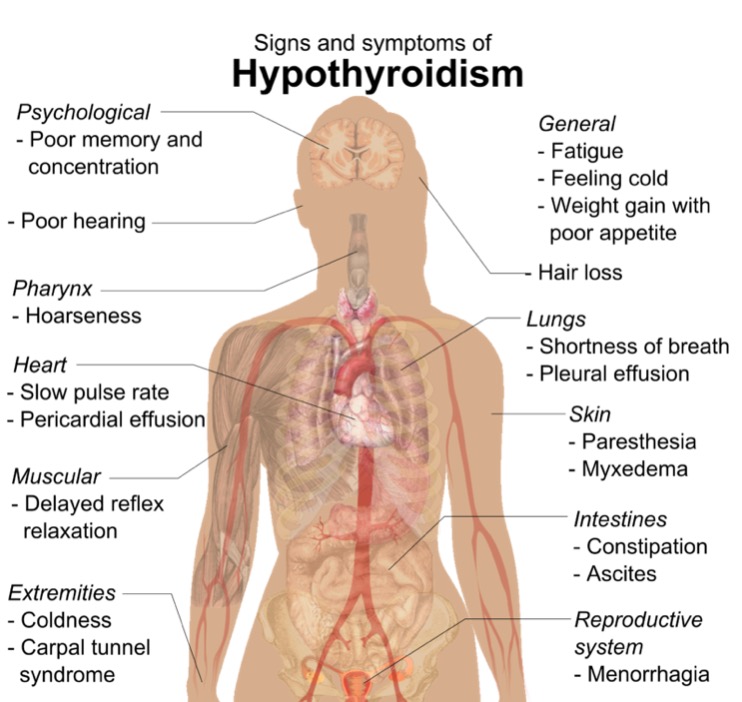Playlist
Show Playlist
Hide Playlist
Euthyroid Sick Syndrome with Case
-
Slides Thyroid Disease.pdf
-
Reference List Endocrinology.pdf
-
Reference List Thyroid Disorders.pdf
-
Download Lecture Overview
00:01 Let’s go on to another case. 00:03 A 70 year old man is seen in the hospital 4 days after he was admitted with a myocardial infarction. 00:10 He underwent cardiac catheterization and stent placement. 00:14 He is feeling much better and has no history of thyroid disease or family history of endocrine diseases. 00:21 On exam, his vital signs are normal and his physical exam is unremarkable. 00:27 His labs are significant for TSH of 0.2 microunits per ml, a free T4 and T3 which are mildly decreased. 00:36 What is the most likely cause of this patient’s lab abnormalities? Here we have a patient in the hospital who has a discrepancy between his clinical course and his abnormal labs. 00:49 The TSH is low, based on the lower limits of normal being 0.4 (microunits/mL). 00:55 what is the most likely cause of this condition? Here we are considering the euthyroid sick syndrome. 01:02 The euthyroid sick syndrome occurs when critical illness causes changes in thyroid function tests. 01:09 and this can occur in up to 75% of all hospitalized patients. 01:13 TSH should only be obtained in a hospital when there is high clinical suspicion of thyroid dysfunction. 01:20 The typical pattern which occurs in this condition is initially, there is a low T4 and T3. 01:26 Subsequently as the patient becomes more ill, the TSH level also decreases. 01:32 As the patient then enters the recovery phase, the T3 and T4 levels remains likely low but the TSH level becomes mildly elevated. 01:41 The plan here is to do a follow up thyroid function test but this should not be repeated at least until 6 weeks after discharge from the hospital.
About the Lecture
The lecture Euthyroid Sick Syndrome with Case by Michael Lazarus, MD is from the course Thyroid Disorders. It contains the following chapters:
- Case 1.6
- Euthyroid Sick Syndrome
- ***KAPITEL***
Included Quiz Questions
For which features of a patient history and physical examination would inpatient TSH testing be indicated?
- High clinical suspicion of thyroid dysfunction
- Altered mental status requiring general inpatient admission
- Septic shock requiring ICU admission
- New finding of weakness requiring neurologic consult
- Aspiration pneumonia requiring bronchoscopy
What is the best step in the treatment of a patient with abnormal inpatient thyroid function test results?
- If unrelated to current condition, repeat TSH and T4 tests at 6 weeks after discharge
- If unrelated to current condition, treat for TSH > 10
- Consult endocrinology department
- Start empiric weight-based levothyroxine
- Order ultrasonograph of neck for thyroid nodule
What is the most likely cause of the following patient's lab test result abnormalities? A 70-year-old man is evaluated 4 days after admission with myocardial infarction. He had cardiac catheterization and stent placement, and he is feeling much better. He has no history of thyroid disease or family history of endocrine diseases. Physical examination: normal vital signs, rest is unremarkable. Laboratory test results: TSH of 0.2 μU/mL and mildly decreased free T4 and T3.
- Euthyroid sick syndrome
- Thyroid hormone resistance
- Toxic adenoma
- Hashimoto thyroiditis
Customer reviews
5,0 of 5 stars
| 5 Stars |
|
1 |
| 4 Stars |
|
0 |
| 3 Stars |
|
0 |
| 2 Stars |
|
0 |
| 1 Star |
|
0 |
really good case. I found this very helpful. I was thinking about pituitary problems so this seems a good learning case.





